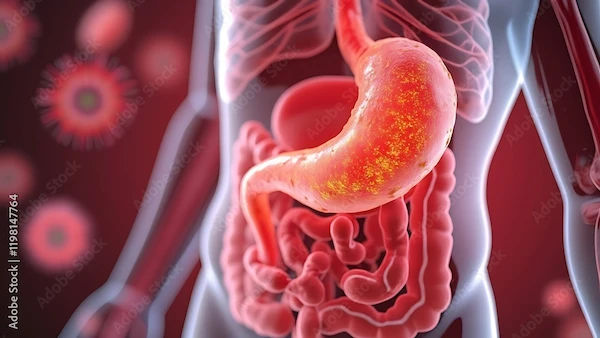How to Manage Acidity During Pregnancy Safely
Get trusted pregnancy acidity relief with proven heartburn remedies. Learn causes, safe home tips, and medicines to try with your provider’s guidance.


Introduction
If you’re pregnant and feeling a burning sensation in your chest or throat after eating, you’re not alone. Heartburn (also called acidity or acid reflux) is very common in pregnancy. The good news: it’s usually harmless, and there are many safe, effective ways to feel better. This guide explains why heartburn happens during pregnancy, practical steps for pregnancy acidity relief, and which heartburn remedies your healthcare provider may recommend if lifestyle changes aren’t enough. You’ll also learn which products to avoid and when to call your clinician.
Consult a Top General Practitioner for Personalised Advice
What Causes Heartburn During Pregnancy?
The causes for heartburn during pregnancy:
- Hormones relax the valve: Pregnancy hormones—especially progesterone—relax the lower oesophageal sphincter, the valve between your oesophagus and stomach. When this valve relaxes, stomach acid can more easily flow upward, causing that burning feeling.
- Growing baby, less stomach space: As your uterus expands (especially in the second and third trimesters), it puts pressure on your stomach, pushing contents upward and triggering reflux.
- Slower digestion: Hormones also slow digestion, so food stays in your stomach longer, increasing the chance of reflux.
Heartburn is common at any time in pregnancy, but tends to be worse later on. It can be uncomfortable, but it rarely harms you or your baby. Still, no one wants to feel miserable after meals. Let’s talk about relief.
Initial Simple Heartburn Remedies
Small daily changes can make a big difference. Try these proven, pregnancy-safe strategies:
Eating and drinking habits
- Eat small, frequent meals instead of three large ones.
- Eat slowly and chew thoroughly.
- Avoid lying down for at least 2–3 hours after eating.
- Have dinner earlier in the evening.
- Sip fluids between meals rather than with large meals to reduce stomach volume.
- Keep a food diary to spot your personal triggers.
Common trigger foods and drinks
- Spicy foods, fried or fatty foods
- Chocolate, mint
- Coffee, tea, energy drinks (caffeine can trigger reflux)
- Citrus fruits/juices and tomato-based foods
- Carbonated beverages, onions, and garlic (for some people)
- Limit or avoid these if they make symptoms worse.
Body Position and Clothing
The tips for body positioning and clothing include:
- Elevate your head and upper body during sleep. A wedge pillow or raising the head of the bed 6–8 inches can help more than stacking pillows.
- Sleep on your left side; this position may reduce reflux episodes.
- Wear loose, comfortable clothing; avoid tight waistbands and belts.
Other helpful tips
- Chew sugar-free gum after meals. It boosts saliva, which helps neutralise acid.
- Maintain weight gain within your provider’s recommended range.
- Avoid smoking and alcohol—both are unsafe in pregnancy and can worsen reflux.
- If prenatal iron upsets your stomach, ask your provider about timing or formulation. Avoid taking iron at the same time as calcium-containing antacids, as calcium can reduce iron absorption; separate them by a few hours.
Safe Medications For Pregnancy Acidity Relief (talk to your provider too)
If lifestyle steps don’t fully control symptoms, your clinician may suggest medicines that are considered safe in pregnancy. Always follow label directions and your provider’s guidance.
Antacids
- Calcium carbonate: Commonly used (for example, many “chewable” antacids). It neutralises acid quickly and can also add to your daily calcium intake.
- Magnesium or aluminium hydroxide: Some antacids use these ingredients. They can help, though magnesium may cause loose stools and aluminium can cause constipation.
- Alginate-based products: These form a “raft” that sits on top of stomach contents and can reduce regurgitation—often recommended in pregnancy.
- Important cautions:
- Avoid antacids with sodium bicarbonate (baking soda) due to the risk of fluid retention and metabolic alkalosis in pregnancy.
- Avoid bismuth subsalicylate (such as some “pink” stomach remedies) due to salicylate content.
- Check labels for aspirin or salicylates and avoid them.
- If you take iron, separate it from calcium-containing antacids by a few hours to help iron absorption.
H2 blockers (acid reducers)
- Famotidine: Often used when antacids aren’t enough. It reduces acid production and is generally considered safe in pregnancy. Your provider can recommend a dose and timing that fits your symptoms.
Proton pump inhibitors (PPIs)
- Examples include omeprazole and lansoprazole. PPIs block acid production more strongly and are used if symptoms are frequent, severe, or not controlled by H2 blockers. Research suggests these are generally safe in pregnancy, but you should use them under medical guidance.
Sucralfate
- This medication coats the stomach and oesophagus lining and is minimally absorbed. Your provider may consider it if other options aren’t suitable.
Nighttime Heartburn: Extra Tips
The tips for nighttime heartburn are:
- Finish eating at least 3 hours before lying down.
- Elevate the head of your bed 6–8 inches or use a foam wedge. (Multiple soft pillows can bend your neck and increase pressure on the stomach.)
- Sleep on your left side.
- Keep a small glass of water at your bedside for sips if you wake up with heartburn.
- If you need a snack, choose something small and low-fat, like a few whole-grain crackers with a bit of low-fat yoghurt.
What to Avoid?
Avoid the following items:
- Large, high-fat meals—especially late in the day.
- Known triggers (spicy, greasy, acidic foods; chocolate; mint; caffeine; fizzy drinks).
- Tight clothing or belts around your abdomen.
- Lying flat soon after eating.
- Unproven herbal “cures.” Many supplements aren’t tested for safety in pregnancy.
- Sodium bicarbonate, antacids and bismuth subsalicylate. Check labels and ask your pharmacist if you’re unsure.
When to Call Your Healthcare Provider?
Call your clinician if:
- Heartburn is severe, daily, or not improving with lifestyle changes and over-the-counter options.
- You have trouble swallowing, persistent nausea/vomiting, or vomiting that looks like coffee grounds.
- You notice black, tarry stools or red blood in vomit.
- You lose weight without trying or can’t keep food/fluids down.
- You have chest pain with sweating, shortness of breath, or pain spreading to the arm/jaw—seek emergency care.
- You develop severe upper abdominal pain with headache, vision changes, or swelling—seek urgent care.
Your provider can help tailor heartburn remedies and medications to your needs and ensure they’re safe with your prenatal care.
Conclusion
Most people find a combination of daily habits and, when needed, safe medications brings real pregnancy acidity relief. If symptoms are frequent or severe, don’t tough it out—talk to your prenatal care provider about heartburn remedies tailored to you.
Consult a Top General Practitioner for Personalised Advice
Consult a Top General Practitioner for Personalised Advice

Dr. Mainak Baksi
General Practitioner
13 Years • MBBS , MD (MPH)
Howrah
Mainak Baksi Clinic, Howrah
(50+ Patients)

Dr. Rajib Ghose
General Physician/ Internal Medicine Specialist
25 Years • MBBS
East Midnapore
VIVEKANANDA SEBA SADAN, East Midnapore

Dr Suseela
General Physician
5 Years • MBBS
Bengaluru
Apollo Medical Center, Marathahalli, Bengaluru

Dr. Tanmaya Kumar Sahu
General Physician/ Internal Medicine Specialist
12 Years • MBBS, MD ( Internal Medicine )
Bhubaneswar
Apollo Hospitals Old Sainik School Road, Bhubaneswar
(25+ Patients)
Dr.f.fathima Thahira Juhi
General Practitioner
6 Years • MBBS
Chennai
YZEE CLINIC AND DIAGNOSTICS, Chennai
Consult a Top General Practitioner for Personalised Advice

Dr. Mainak Baksi
General Practitioner
13 Years • MBBS , MD (MPH)
Howrah
Mainak Baksi Clinic, Howrah
(50+ Patients)

Dr. Rajib Ghose
General Physician/ Internal Medicine Specialist
25 Years • MBBS
East Midnapore
VIVEKANANDA SEBA SADAN, East Midnapore

Dr Suseela
General Physician
5 Years • MBBS
Bengaluru
Apollo Medical Center, Marathahalli, Bengaluru

Dr. Tanmaya Kumar Sahu
General Physician/ Internal Medicine Specialist
12 Years • MBBS, MD ( Internal Medicine )
Bhubaneswar
Apollo Hospitals Old Sainik School Road, Bhubaneswar
(25+ Patients)
Dr.f.fathima Thahira Juhi
General Practitioner
6 Years • MBBS
Chennai
YZEE CLINIC AND DIAGNOSTICS, Chennai
More articles from Acidity Treatment
Frequently Asked Questions
1) Is heartburn during pregnancy harmful to my baby?
No. Heartburn is very common in pregnancy and is usually harmless to the baby. It happens due to normal hormonal changes and increasing pressure on your stomach. The main goal is to keep you comfortable, hydrated, and well-nourished. If symptoms are severe, your healthcare provider can suggest safe treatments.
2) Which over-the-counter antacids are safe in pregnancy?
Antacids with calcium carbonate are commonly used. Some products with magnesium or aluminium hydroxide can also be options. Alginate-based products are often recommended. Avoid antacids with sodium bicarbonate and avoid bismuth subsalicylate. Always read labels, follow dosing instructions, and ask your provider or pharmacist if you’re unsure.
3) Can I take famotidine or omeprazole while pregnant?
Famotidine (an H2 blocker) is commonly used when antacids aren’t enough. If symptoms persist, your provider may recommend a proton pump inhibitor such as omeprazole. These medicines are generally considered safe in pregnancy, but you should use them under medical guidance to ensure the right choice and dose for you.
4) Do natural remedies like milk, ginger, or apple cider vinegar help?
Evidence is limited. A small amount of low-fat milk may temporarily soothe symptoms, but high-fat dairy can make reflux worse. Ginger can help with nausea for some people but may trigger heartburn for others. Apple cider vinegar is acidic and may worsen symptoms. Focus first on proven lifestyle steps; discuss any supplements with your provider.
5) How can I stop nighttime heartburn?
You can stop it by:
Eat your last meal at least 3 hours before bed.
Elevate the head of your bed 6–8 inches or use a wedge pillow.
Sleep on your left side.
Avoid large, fatty, or spicy evening meals and caffeine late in the day.
If needed, ask your provider about safe nighttime options, such as an alginate before bed.



